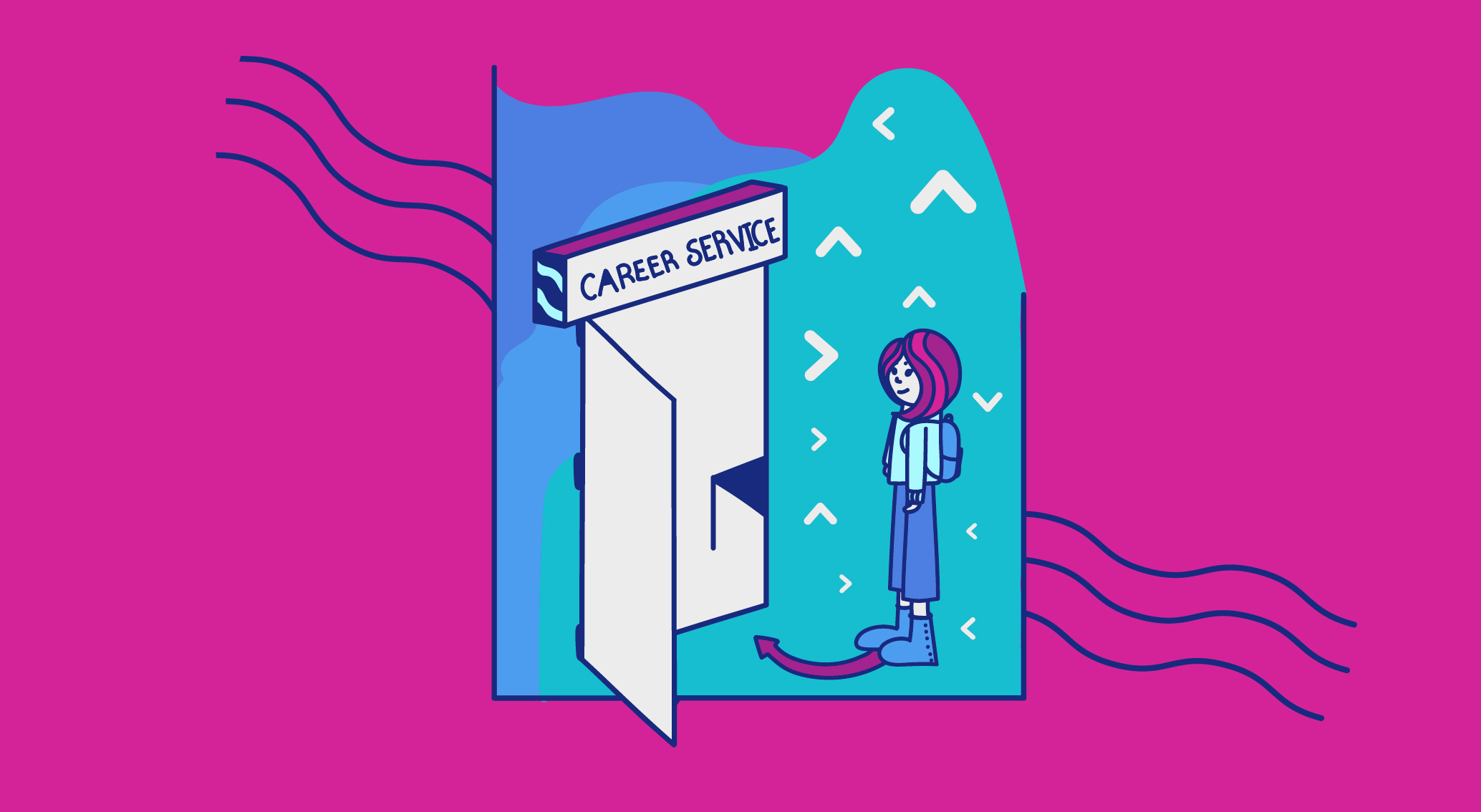Why Should You Use Your University Career Service Office
University Life
3 mins read
Share

Updated at: 16 December, 2024
Published at: 16 February, 2022
By Eslam Massoud
Why Should You Use Your University Career Service Office
University Life
3 mins read

Updated at: 16 December, 2024
Published at: 16 February, 2022
By Eslam Massoud
Share
Upon completing their degrees, most students share the same goal, finding a job. Helping students find a career path that will lead to a successful, happy future is the overall purpose of college. It's quite understandable, then, that the career service office is an essential office on campus.
Typically located on college campuses, the career service offices are specifically designed to assist students with honing their job search skills. They also help identify and work toward career goals, find suitable careers or graduate school programs, get referrals to employers, and boost networking skills. These services are usually covered by the fees students pay as part of their tuition. Also, Alumni generally can access these services at any point in their careers, at no additional cost.
Advantages of Using University Career Service Offices
College graduates who visit their college career centres are more likely to obtain full-time jobs than their peers who do not use this service. They’re also more likely to find their jobs more fulfilling. The service provides multiple benefits that you can use to your advantage, including internships, resume preparation, planning student loan repayments, etc.

University Career Service Offices Services & Benefits
Internship and Job Listings, Placements, and Referrals
One of the most used services available in college career offices are job listings. Many career offices have access to job openings that you can’t find on major job boards since employers reach out directly to career advisers.
Career offices also help with job and internship by writing referrals to employers, placing students in internships, and hosting campus job fairs. Students looking for part-time jobs as part of their financial aid packages can also be placed in a suitable position through their career offices.
Career Guidance & Advising
A career counsellor can arrange job shadowing for undecided students by talking about job interests. Sometimes they can also recommend courses that will help students cement or redefine career goals.
Counsellors are trained to work with students in identifying majors and career paths. They know that not all majors lead to clearly defined careers, and they have access to valuable data showing where people with specific majors ended up in the workplace.
Seminars on Resumes and Job Interview Skills & Prep
Career offices often post online resources of sample resumes and interview questions. They also usually have seminars on interviewing. Students will learn how to dress professionally, answer questions, and write resumes tailored to individual positions. Knowing these basic career search skills can be as important as any lecture students will take on campus.
Also, career Offices sometimes provide mock interviewing sessions where you can practice your skills. Mock interviews can go a very long way to making students feel prepared for real interviews and will help them feel a bit less nervous. According to a 2017 study by the National Association of Colleges and Employers, although mock interviewing was one of the least-used services among students, it was considered the single most helpful.
Entry-level Salary Calculations
Career offices track the salaries of recent graduates; students should be visiting these offices every semester to make a realistic idea of their post-graduation salary expectations. It is important to go every semester because students' career ambitions and salary expectations often change. For example, a student may want to be a journalist and end up in a different occupation. Different fields vary in their entry-level salaries.
Mentorship and Networking Opportunities
Career offices help students find networking events to connect with alumni and professionals in their potential careers. Mentorship and shadowing are very helpful tools for career exploration. If you spend some time with a professional in your field of interest, you can ask questions and find just the answers you need. Mentors offer valuable advice on everything from what classes might benefit you to navigating college life.
You now know the many excellent benefits of university’s career offices; make sure you visit them frequently and make use of their help and everything they have to offer. When you have your future career figured out, you can check our blog on how to get a post-study work visa so you can pursue that career.
University Life
By Eslam Massoud
Share
University Life
Updated at:
Published at:
By Eslam Massoud
Share


